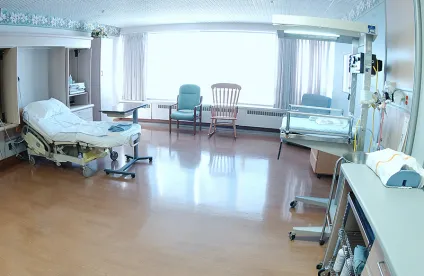On October 30, 2015, the Centers for Medicare & Medicaid Services (CMS) released its final rule updating the Hospital Outpatient Prospective Payment System (OPPS) and Ambulatory Surgical Center (ASC) Payment System for Calendar Year (CY) 2016 (the Final Rule). In addition to finalizing modifications to CMS’ medical review criteria, the Final Rule ratifies CMS’ proposal to alter its “2-Midnight Rule.” The Final Rule will be published Friday, November 13, 2015, in the Federal Register and will go into effect on January 1, 2016.
2-Midnight Rule Background and Final Rule
As discussed in our prior commentary on the proposed rule, CMS developed the 2-Midnight Rule in 2013 as a framework to determine when payment under Medicare Part A was appropriate for inpatient stays. The current 2-Midnight Rule generally treats surgical procedures or other services that require less than a 24-hour stay in a hospital as outpatient services for reimbursement purposes. Such services are only properly billed to Medicare Part A in “rare and unusual” circumstances. The current 2-Midnight Rule also considers Part A reimbursement generally appropriate in cases where a physician expects a stay will span two midnights or longer. Stays that ultimately span two midnights are presumed appropriate and are generally not targeted for medical review. This presumption also applies to instances where the stay was less than two midnights due to unforeseen circumstances such as patient death, transfer, clinical improvement or departure against medical advice. The Final Rule does not change these presumptions, but adopts an exception to the current 2-Midnight Rule policy. This exception permits Part A reimbursement on a case-by-case basis for inpatient admissions expected to span less than two midnights if the documentation in the medical record supports the admitting physician’s determination that the patient requires inpatient hospital care despite an expected length of stay of less than two midnights. CMS has noted certain factors that should be more relevant to physicians in their subjective determination of whether Part A payment is appropriate. These include the severity of the patient’s symptoms, the medical probability of patient harm and the need for diagnostic studies that are typically provided on an outpatient basis. CMS has also maintained that it expects stays of less than 24 hours to rarely qualify for an exception.
Comments on the Proposed Rule
CMS received significant comments on its proposed changes to the 2-Midnight Rule. These comments identified several areas of industry concern. First, several commenters were concerned about the incentives this exception might create to “game” the system and lengthen hospital stays in order to avoid scrutiny. Similarly, another commenter expressed concern that the proposed change would create a market for “exception” letters to be sold to hospitals to inappropriately “document” case-by-case exceptions to the 2-Midnight Rule. CMS’ global response to these concerns was that they will be monitoring claims data for patterns indicative of fraud and abuse, and will take appropriate actions against providers found gaming the system. Another central theme of comments received about the 2-Midnight Rule proposal was that these changes would create confusion in the industry, especially without instructions or case examples of appropriate “physician judgement.” Though commenters pointed out that the new case-by-case exception is similar to CMS’ inpatient admissions standard before the 2-Midnight Rule was enacted, CMS maintained that the modifications are “not a return” to that prior policy. Nonetheless, this lack of clarity may be a barrier to efficiently implementing this new rule for many providers. Finally, several commenters supported a counter proposal to create a 1-midnight rule, under which any Medicare beneficiary who required overnight hospital care would be admitted and their care paid by diagnosis related group (DRG) under Part A. This counter proposal also called for a number of other changes, such as the timing of effective admissions orders and the creation of a new payment classification for “extended outpatient evaluations.” CMS rejected this counter proposal, citing a number of issues including the possibility of a major increase in Part A spending that could force a negative adjustment to payment rates and create an even greater incentive for gaming.
Changes to Medical Review and Enforcement
In response to other comments that the revision to the 2-Midnight Rule could be used to deny otherwise appropriate claims and lead to significant appeals backlogs, CMS pointed to its changes to the short-stay inpatient medical review process, announced in the proposed rule. Under this new process, which began October 1, 2015, Beneficiary and Family Centered Care Quality Improvement Organizations (BFCC-QIOs) review the medical appropriateness of the inpatient admission for short inpatient stays. Medicare Administrative Contractors (MACs) and Recovery Audit Contractors (RACs) will no longer conduct the initial medical reviews of providers that submit short stay inpatient admissions. Claims that are out of compliance with the 2-Midnight Rule and similar criteria will be referred to the MACs for payment adjustments. BFCC-QIOs will also be educating providers about the 2-Midnight Rule. Providers with patterns of high denials and repeat or persistent non-compliance with the 2-Midnight Rule will be referred to the RACs for additional medical review. CMS also notes that failing to improve performance after BFCC-QIO education or having “frequent inpatient hospital admissions for stays that do not span one midnight” would also trigger a RAC referral.





 />i
/>i
